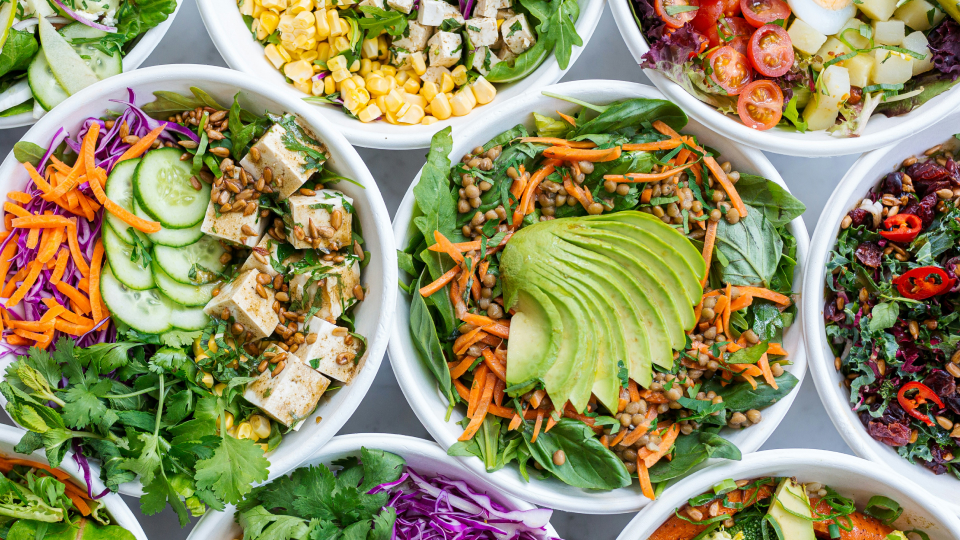Food trends 2022

What’s set to change about the way we fuel our bodies over the next 12 months? If you’re a health-conscious foodie, you’ll be keen to give these new nutrition trends a whirl.
Mixing up your milk (even more than before)
Move over soy, almond, coconut and cashew … a new range of plant-based milk has sprung onto the scene. Oat milk has recently become one of the most popular milk alternatives, setting the stage for a variety of grain-based options, barley in particular. Barley milk is poised to become a popular option that is low in fat, rich in fiber, and offers added calcium, vitamin D, and vitamin B12. Not only does barley have nutritious attributes, it's also a hardy grain that can be grown in extreme climates – making it the fourth most cultivated crop in the world. Another interesting option set to thrive is potato milk, which is low in sugar and saturated fat.
Going from pre- or probiotics to postbiotics
In recent years we’ve learned a lot about the value of prebiotics, probiotics and fermented foods; now it’s postbiotics that are creating a buzz in the world of gut health. Postbiotics are the result of fermentation in the intestine when probiotics feed on prebiotics. Like prebiotics and probiotics, postbiotics are credited with preventing leaky gut, lowering blood sugar and the risk of obesity, and offering anti-inflammatory benefits. Unlike pre and probiotics, postbiotic supplements haven’t been commonly available – until now. We can expect to see an increasing amount of postbiotic supplements on the market. You can also naturally increase postbiotic production with foods such as kimchi, kefir and sourdough.
Scientists are now saying improved gut health isn’t the only benefit born from fermented foods, and they are currently exploring the wider functional benefits. They have recently discovered something called the ‘gut-lung axis’, highlighting how a combination of probiotic strains could reduce symptoms of viral upper respiratory tract infections.

Eating for the environment
Environmental awareness and a willingness to go the extra mile to reduce carbon footprint has surged in the past year. One survey shows 85 percent of us are now making more sustainable lifestyle choices, and according to supermarket chain Waitrose, 70 percent of shoppers now consider the carbon footprint of their food.
An increase in low- or zero-waste food options is expected, but that’s just the beginning. The Whole Foods Trends Council (made up of local foragers, regional and global buyers, and culinary experts) predicts that grains grown via agricultural practices and farming processes that help address soil health will be hugely popular. One example is Kernza. Found in cereals and even beer, this is a perennial grain with a sweet, nutty flavor and long roots. We can also anticipate more produce from ultra-urban and indoor farming. Thanks to hydroponics, aquaponics and renewable greenhouse systems, it will become easier for urban city dwellers to enjoy sustainable, locally-grown (or even home-grown) produce.
Another thing we’ll see more of is lab-grown meat. Although the concept has been around since 2013, it wasn't until 2021 when lab-grown meat was first sold to the public (in Singapore). The meat is cultivated by extracting muscle stem cells from an animal and growing them. An increasing number of producers are adopting this technology – and not just for meat. Thanks to the wonders of microbial fermentation, all sorts of lab-made foods are on the horizon.
As environmentally-sound foods increase in popularity, those that are detrimental will continue to be shunned – we’re looking at you palm oil! Not only is palm oil production associated with destroying rainforests, it’s high saturated fat content links it to heart disease, liver dysfunction, obesity and type 2 diabetes. And now, new research shows the palmitic acid in palm oil could even promote the metastatic spread of cancer.
Adopting reductarianism
A further trend highlighted in the Whole Foods top ten for 2022 is reductarianism, also known as flexitarianism. This is born from the knowledge that cutting meat from our diets can help us live healthier and more eco-friendly lives. If you're not sold on the idea of going vegetarian or vegan, reductarianism could be for you. It simply involves making meat a once-in-a-while or only-on-the-weekends food, rather than part of your regular meal rotation. On the occasions that you do eat animal products, prioritize grass-fed meat and free-range eggs. With an increasing array of plant-based options now available, reducing your meat intake is set to get easier than ever.
The flavors and foods that will be trending (as predicted by Whole Foods):
- Yuzu – Yuzu is a tart and sour citrus fruit with a unique lime/lemon/grapefruit flavor. Yuzu is a delicious addition to vinaigrettes and seltzers and a great accent for soups, veggies, noodles and fish.
- Hibiscus – Over the years many have enjoyed hibiscus tea for its sweet but tart flavor and vitamin C boost. Now the hot pink hue is a popular base of fruit spreads and yogurts, and being added to a variety of craft drinks.
- Sunflower seeds – Packed with protein and unsaturated fats, sunflower seeds are set to transform your snack game … think sunflower seed crackers, ice creams and creamy cheeses. Best of all, many of these sunflower seed–based products are made without nuts, which means allergy-friendly school snacks!
- Moringa – A traditional herbal remedy from Africa and India (where it has been used to fight malnutrition), moringa just might be the new alternative to matcha. Moringa powder can be added to smoothies, sauces and baking and added to protein bars and grain blends.
- Turmeric – While turmeric lattes and supplements are nothing new, this golden spice is set to start showing up in all sorts of places. Increasingly cereals, sauerkrauts and even plant-based ice cream sandwiches are all making use of turmeric.











